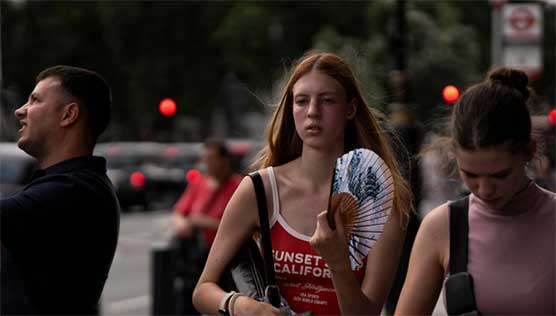
UK hottest summer 2025, heat-related deaths UK, climate change heatwave, Met Office record
The UK confirmed its hottest summer ever in 2025, per experts. Imperial College London reports 1,147 heat deaths, with London hit hardest. Climate change amplified temps by up to 3.6°C.London, Oct. 5 – The numbers are in, and they’re scorching: 2025 has officially gone down as the United Kingdom’s hottest summer on record. What felt like endless weeks of sweltering sunshine for some was a deadly crisis for others, with new research revealing over 1,100 lives lost to the heat. For Brits, who’ve long joked about “making the most of 10 minutes of sun,” this summer wasn’t a punchline—it was a wake-up call.
The Data Doesn’t Lie: Met Office Confirms the Record
After months of analysis, the UK’s Met Office—its gold standard for weather data—made the confirmation official in early September: June, July, and August 2025 averaged 18.7°C (65.7°F), edging out the previous 2018 record by 0.4°C. But the real shocker? Temperatures were up to 3.6°C hotter than they would’ve been without human-caused climate change, according to a study from Imperial College London.
Individual days hit even more extreme highs. Heathrow Airport recorded 39.8°C (103.6°F) in July, while parts of East Anglia topped 40°C for the first time since 2022. “This isn’t just ‘unusually warm’—it’s a pattern,” a Met Office spokesperson told reporters. “We’re seeing records fall not by fractions, but by whole degrees, and that’s not by accident.”
The Silent Toll: 1,147 Lives Lost to the Heat
Behind the record temps is a tragic human cost. Imperial College’s peer-reviewed study, released in late September, estimates 1,147 heat-related deaths across the UK this summer. London bore the brunt with 315 fatalities, followed by Birmingham with 52. Glasgow and Sheffield each recorded 24 deaths, while Edinburgh saw 22.
Heat is a “silent killer,” explains Clair Barnes, a researcher at Imperial’s Centre for Environmental Policy. Most victims die from worsened preexisting conditions—heart issues, breathing problems, kidney disease—with heat rarely listed as the direct cause on death certificates. “An 81-year-old in Manchester doesn’t ‘die of heat’ on paper,” she said. “They die of a heart attack that the heat pushed over the edge. But make no mistake—this is climate change’s fingerprint.”
Social Media Reacts: From Beach Pics to Outrage
On Twitter and Facebook, the summer told two stories. Early July was flooded with #UKHeatwave posts: Brits sunbathing in parks, eating ice cream on tube platforms, and mocking their own lack of AC. But by August, the tone shifted. #HeatDeaths trended as families shared stories of lost loved ones, and users called out the government for “failing to protect the vulnerable.”
Viral threads highlighted the inequality of the crisis: Wealthier families fled to coastal cottages or cranked up portable AC, while low-income seniors stuck in uninsulated flats had nowhere to turn. “My nan refused to use her fan because she was scared of the electric bill,” one Twitter user wrote. “Now she’s gone. This isn’t ‘bad weather’—it’s neglect.”
What’s Next? The UK’s Heat Problem Isn’t Going Away
Experts warn this summer isn’t an anomaly—it’s the new normal. The Met Office projects that heatwaves could become 10 times more frequent by 2050 if carbon emissions don’t drop. For a country built for rain, not relentless sun, that’s a massive problem.
Already, calls are growing for policy changes: Mandatory AC in care homes, better insulation for affordable housing, and more public cooling centers. “We can’t keep treating heatwaves like a surprise,” Barnes said. “This summer proved we’re not ready. Next time, the toll could be even higher.”
As autumn finally brings cooler air to the UK, the sting of 2025’s record summer lingers. The 1,147 lives lost aren’t just numbers—they’re a reminder that climate change isn’t a distant threat. It’s here, it’s hot, and it’s costing us. For Brits, the joke about bad weather is over. Now, the hard work of adapting begins.
